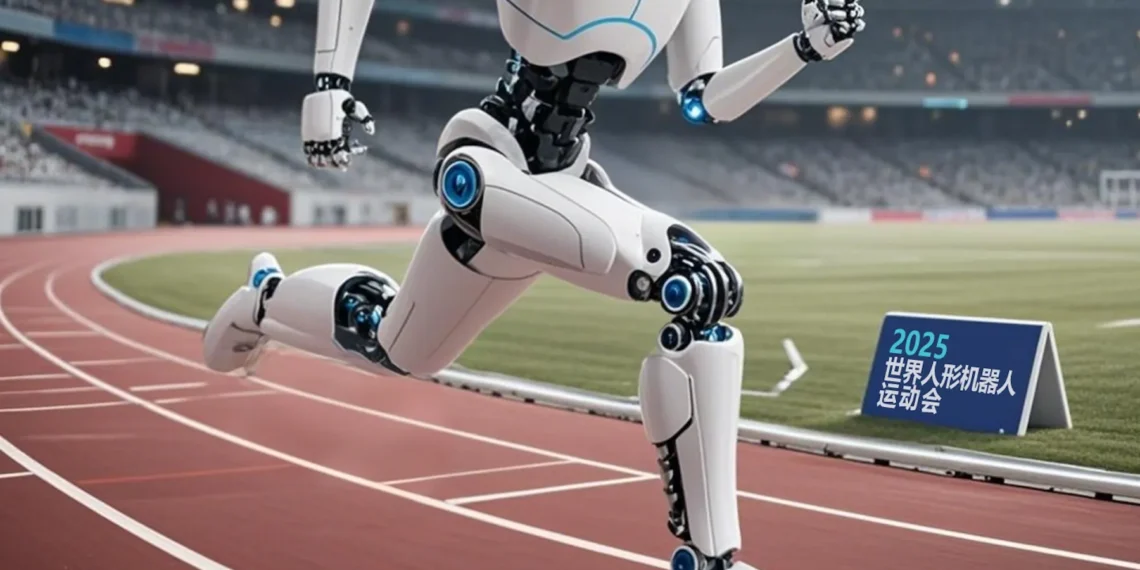The debate over whether Artificial Intelligence (AI) and robotics will eventually replace humans is no longer confined to the workplace or industrial environments. It is now creeping into one of humanity’s oldest and most beloved traditions-sports. The recent launch of the World Humanoid Robot Games in China has sparked a global conversation, raising concerns about whether AI-powered humanoid sports could eventually reduce or even eliminate human participation in athletics.
For decades, experts have warned that AI could render millions of jobs obsolete, transforming industries ranging from technology and healthcare to manufacturing and agriculture. Now, with robots stepping into the sports arena, the fear that automation will reshape not just work but also leisure and competition is becoming more real than ever.
China’s Push Into Humanoid Sports
The inaugural World Humanoid Robot Games, held in China in 2025, marked a turning point in how the world views robotics. Supported by powerful nations such as the United States and Germany, the event attracted more than 16 countries and 280 robotics teams. Unlike earlier robotics competitions that showcased machines in industrial or technical challenges, this competition was different: it focused on robots designed to mimic human athletes.
According to the International Federation of Robotics, China has declared humanoid robotics a national priority, embedding it into its broader strategy of global technological dominance. Already recognized as the world’s largest market for industrial robots, China now seeks to extend its influence into sports and entertainment, signaling a shift that many believe could redefine the future of both robotics and human employment.
“The government aims to demonstrate its capabilities and global competitiveness in this technological domain,” the federation’s report stated, underscoring the seriousness with which Beijing is approaching this new frontier.
The AI Job Threat Extends to Sports
The introduction of humanoid games arrives at a time when AI is already transforming the global workforce. Analysts predict that up to 300 million jobs could be lost due to automation, with as much as 60% of jobs in advanced economies at risk. For low-income countries, the threat is lower but still significant, with around 26% of roles exposed to AI disruption.
Read also:
- AC Milan expresses interest in Manchester United’s Hojlund
- Santos dismisses coach Xavier following disastrous 6-0 home loss
- Bournemouth agree £25m deal for Liverpool’s Doak
Even within developed economies, the impact is uneven. Statistics suggest that workers aged 18 to 24 are more than 120% more likely than those over 65 to fear their jobs being automated. Meanwhile, 3% of workers without a high school diploma are in roles classified as “most exposed” to AI takeover. Shockingly, surveys also reveal that 15% of U.S. employees would be willing to work under an AI supervisor.
Sports, however, has long been viewed as an industry immune to such disruptions. With millions employed directly and indirectly in coaching, refereeing, physiotherapy, sports journalism, and event management, athletics has historically been considered a safe career field. But the arrival of humanoid robots capable of mimicking athletes raises a chilling question: could machines eventually replace the very athletes who inspire billions across the world?
Robots Competing Like Humans
The humanoid games are not simply a display of technology, they are designed to simulate real sports competitions. From running and jumping to team-based challenges, the robots are built to resemble human players both in form and in skill. This development threatens to redefine how we perceive sports.
For fans, humanoid games may appear as a fascinating spectacle, blending the thrill of athletics with the marvel of technology. For workers in the sports ecosystem, however, it sparks fears of redundancy. If audiences begin to shift their attention to robot competitions, the demand for human athletes and related jobs could decline. Sponsorships, endorsements, and ticket sales may follow the robots, creating a ripple effect that could destabilize the global sports economy.
The Broader Impact of AI on Human Identity
What makes the rise of humanoid sports particularly alarming is not just the potential job losses but also the existential question it poses: if robots can compete like humans, what then becomes of human identity and achievement?
For centuries, sports have symbolized endurance, discipline, and the triumph of the human spirit. The Olympics, for instance, is more than just competition, it is a celebration of what humans can achieve when they push their limits. If robots begin to dominate, the essence of sports as a uniquely human pursuit may be lost.
Some argue that humanoid competitions could coexist with traditional sports, much like eSports has carved out a space alongside football and basketball. But unlike eSports, where humans remain central as players, humanoid sports risk removing people entirely from the equation.
A Future Defined by Coexistence or Replacement?
The introduction of AI into sports reflects a larger trend: technology is increasingly blurring the line between human capacity and machine capability. From ChatGPT-5, expected to revolutionize communication, to general-purpose AI agents like Manus, which already automate complex tasks, the future of work and play is being reshaped before our eyes.
Experts predict that automating half of current tasks worldwide could take as little as two decades. By 2030, an estimated 14% of the global workforce may be forced to switch careers altogether. Sports, once thought to be immune, now sits at the edge of this transformation.
The rise of humanoid games is not merely an entertaining technological showcase. It is a strong statement about the direction in which AI is heading and a warning about the sectors we once believed were safe from automation.
As robots begin to run, jump, and play in arenas once reserved for humans, the world must grapple with an urgent question: are we witnessing the evolution of sports, or the beginning of its replacement by machines?
One thing is most certain; AI is no longer just reshaping our jobs, but it is also challenging our very definition of human achievement and participation and sport is no exception.






